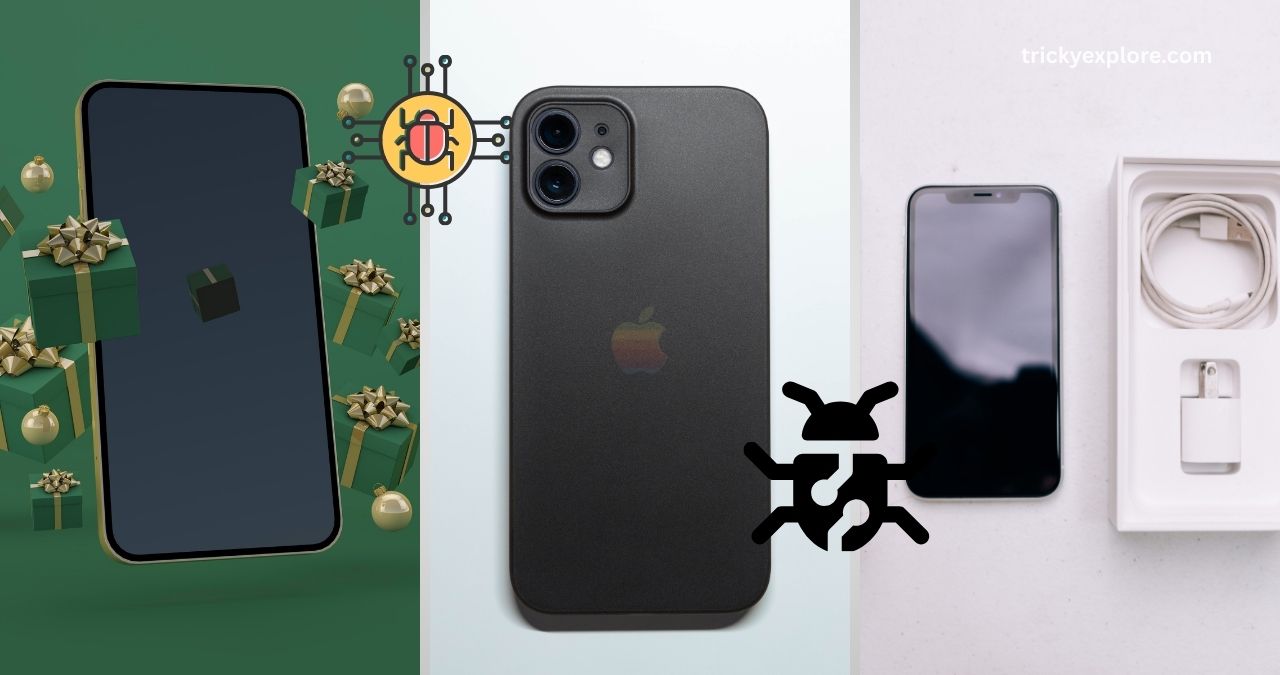Hey there, iPhone users! Imagine getting a text from Apple warning you that someone’s trying to spy on your phone. Scary, right? This week, Apple sent out notifications to people in 100 countries, alerting them to potential spyware attacks on iPhones. These aren’t your average malware scams—they’re sophisticated, government-backed attacks targeting specific individuals like journalists, activists, and even politicians. If you’re wondering what this means for you and how to keep your iPhone secure, you’re in the right place. Let’s dive into the details, break it down, and share some easy tips to stay safe.
In this blog, we’ll explore what these spyware attacks on iPhones are, why they’re happening, and how you can protect your device. We’ll also share real-world examples, actionable strategies, and answers to the most common questions people are asking online. Ready? Let’s get started!
Table of Contents
ToggleWhat Are Spyware Attacks on iPhones?
Spyware is sneaky software designed to infiltrate your device, steal your data, and monitor your activities—often without you noticing. The spyware attacks on iPhones that Apple is warning about are called “mercenary spyware attacks.” These are highly advanced, costly, and targeted operations, often linked to governments or private companies working for them. Unlike regular malware, these attacks zero in on specific people because of who they are or what they do.
Apple’s recent notifications, sent to users in 100 countries, highlight the growing threat of tools like Pegasus, developed by companies like NSO Group. These tools can access your messages, calls, photos, and even your camera or microphone. Yikes!
Why Should You Care?
- Your privacy is at risk. Spyware can expose your personal information, from texts to banking details.
- Targeted attacks are rare but serious. If you’re a journalist, activist, or public figure, you might be on the radar.
- Anyone can be vulnerable. Even if you’re not a “high-profile” target, staying informed keeps you prepared.
Apple’s Latest Spyware Notifications: What We Know
This week, Apple sent emails and text messages to users in 100 countries, warning them about potential spyware attacks on iPhones. The company has been issuing these alerts since 2021, notifying users in over 150 countries so far. Here’s the scoop:
- Who got the alerts? So far, two people have publicly confirmed receiving them: Ciro Pellegrino, an Italian journalist, and Eva Vlaardingerbroek, a Dutch activist. Both shared their experiences online, with Pellegrino noting the attack wasn’t isolated but part of a global wave.
- What did Apple say? The notifications warned users that their iPhones were likely targeted by mercenary spyware due to their identity or work. Apple urged them to take immediate steps to secure their devices.
- How serious is this? Apple says these attacks are “rare and highly sophisticated,” costing millions to develop. They’re not random—they’re aimed at specific individuals.
Other tech giants, like Google and WhatsApp, have also sent similar warnings in the past. For example, WhatsApp previously alerted Pellegrino’s colleague about a spyware attack linked to an Israeli company called Paragon Solutions. This shows that spyware attacks on iPhones and other devices are a global issue.
Real-World Examples of Spyware Attacks
To understand the impact of spyware attacks on iPhones, let’s look at a couple of real cases:
- Ciro Pellegrino’s Story
Ciro, a journalist for Fanpage in Italy, received Apple’s notification on Tuesday. He got both an email and a text warning that his iPhone was targeted by spyware. The message also mentioned that users in 100 countries were affected. As a journalist covering sensitive topics, Ciro might have been targeted to monitor his sources or stories. He’s now working with experts to secure his device. - Eva Vlaardingerbroek’s Experience
Eva, a Dutch activist, posted on X about receiving a similar alert. She described it as an attempt to intimidate her for her outspoken views. Like Ciro, she’s taking steps to protect her iPhone and raise awareness about these threats.
These examples show that spyware attacks on iPhones often target people with influence or sensitive roles. But even if you’re not in the spotlight, it’s smart to stay vigilant.
How Do Spyware Attacks Happen?
You might be wondering, “How does spyware even get on my iPhone?” These attacks are sneaky and don’t rely on obvious tricks like phishing emails. Here’s how they typically work:
- Zero-click exploits: Hackers use vulnerabilities in iOS to install spyware without you clicking anything. For example, a malicious iMessage could deliver the spyware silently.
- Social engineering: Attackers might trick you into downloading a shady app or visiting a compromised website.
- Targeted surveillance: Governments or private firms use spyware to monitor specific individuals, often for political or financial gain.
Apple patches these vulnerabilities as soon as they’re discovered, but staying updated is key to avoiding spyware attacks on iPhones.
5 Actionable Tips to Protect Your iPhone from Spyware
Don’t panic! While spyware attacks on iPhones sound intimidating, there are practical steps you can take to stay safe. Here are 5 tips to secure your device:
- Update Your iPhone Regularly
Apple releases updates to fix security holes. Go to Settings > General > Software Update and install the latest version (like iOS 18.4.1). Set your phone to update automatically for extra peace of mind. - Enable Lockdown Mode
If you got a spyware warning (or just want extra protection), turn on Lockdown Mode. This feature limits certain functions, like web browsing and incoming messages, to block attacks. Find it in Settings > Privacy & Security > Lockdown Mode. - Avoid Suspicious Links and Apps
Don’t click on random links in texts or emails, and only download apps from the official App Store. If something looks fishy, trust your gut and delete it. - Use Strong Passwords and Two-Factor Authentication
A strong passcode and two-factor authentication (2FA) make it harder for hackers to access your Apple ID. Enable 2FA in Settings > [Your Name] > Sign-In & Security. - Contact Experts if Targeted
If you receive a spyware warning, reach out to organizations like Access Now’s Digital Security Helpline. They offer free, expert advice to secure your device.
Pro Tip: Back up your iPhone regularly to iCloud or your computer. If something goes wrong, you won’t lose your data.
What to Do If You Receive a Spyware Notification
Got a notification from Apple about a potential spyware attack on your iPhone? Here’s a quick checklist:
- Don’t ignore it. Apple only sends these alerts when they’re confident your device is at risk.
- Update your iPhone immediately to the latest iOS version.
- Enable Lockdown Mode to block potential attacks.
- Contact a cybersecurity expert like Access Now for personalized help.
- Monitor your accounts for unusual activity, like unrecognized logins.
Apple’s notifications also include links to support pages with detailed steps. Follow them carefully to stay safe.
Why Apple’s Notifications Matter
Apple’s efforts to warn users about spyware attacks on iPhones show how seriously the company takes privacy. By alerting users in 100 countries, Apple is shining a light on the shadowy world of mercenary spyware. These notifications also empower users to take action, whether it’s updating their device or seeking expert help.
Other companies, like Google and WhatsApp, are following suit, which is a win for consumer security. The more we know about iPhone security threats, the better equipped we are to protect ourselves.
Conclusion: Stay Safe from Spyware Attacks on iPhones
Spyware attacks on iPhones are a serious but rare threat, and Apple’s recent notifications to users in 100 countries highlight the need to stay vigilant. By understanding how these attacks work and taking simple steps—like updating your iPhone, enabling Lockdown Mode, and avoiding shady links—you can keep your device secure. Real-world cases, like those of Ciro Pellegrino and Eva Vlaardingerbroek, show that these threats are real but manageable with the right precautions.
Whether you’re a journalist, an activist, or just an everyday iPhone user, protecting your privacy is easier than you think. Stay informed, follow our 5 tips, and don’t hesitate to seek help if you get a warning. Got questions about spyware attacks on iPhones? Drop them in the comments, and let’s keep the conversation going!
FAQs About Spyware Attacks on iPhones
What are spyware attacks on iPhones?
Spyware attacks on iPhones are targeted attempts to install malicious software that steals data or monitors activity. They’re often government-backed and use advanced tools like Pegasus.
How does Apple notify users about spyware attacks?
Apple sends emails and text messages to affected users, warning them of potential mercenary spyware targeting their iPhones. The alerts include steps to secure the device.
Who is targeted by spyware attacks on iPhones?
Journalists, activists, politicians, and other high-profile individuals are common targets due to their work or influence. However, anyone can be vulnerable.
How can I protect my iPhone from spyware?
Update your iPhone, enable Lockdown Mode, avoid suspicious links, use strong passwords, and contact experts if you receive a warning.
What is Lockdown Mode on iPhone?
Lockdown Mode is a security feature that restricts certain functions, like web browsing and messages, to block spyware attacks. Find it in your iPhone’s settings.
Are spyware attacks on iPhones common?
No, they’re rare and highly targeted. Apple says these attacks focus on specific individuals, not the general public.








